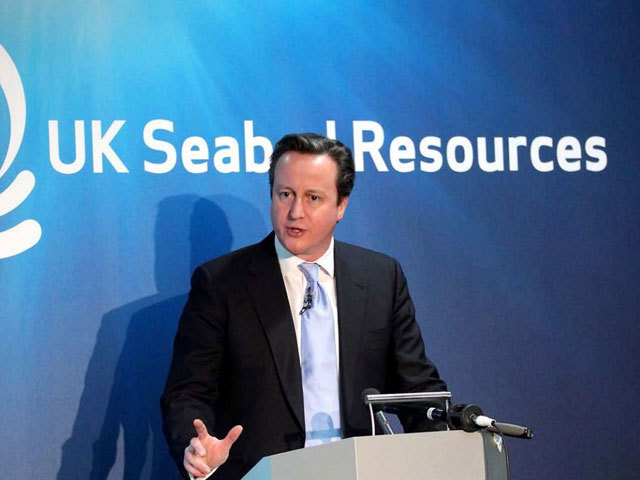
Oil and gas companies from the north-east will help to lead a $1trillion hunt for lucrative metals at the bottom of the Pacific Ocean, the Press and Journal can reveal.
Lockheed Martin UK – one of the world’s biggest defence and technology firms – will turn to subsea experts in Aberdeen and Aberdeenshire to help mine seabed rocks packed full of copper, nickel and manganese.
The company, which is being backed by Prime Minister David Cameron and the UK Government, has been granted one of the first licences to harvest the rocks.
Lockheed Martin UK’s chief executive, Stephen Ball, flew into Aberdeen on Tuesday to outline the plans.
Westhill and Aberdeen have become a global centre of excellence for the subsea sector – and last night Ball said they were on the verge of creating “a whole new industry” for those firms, which employ tens of thousands of people.
“There is around $1trillion (about £589billion) of this material on the first area which we have been given rights to,” Ball said.
“We are looking for companies capable of building equipment and recovering materials – companies that are used to working in deep waters.
“We are also looking for firms which can work with autonomous vehicles, such as ROVs. We also need riser systems to pull the stuff to the surface.
“Effectively, it is the creation of a new industry.”
The seabed harvesting project – led by Lockheed Martin UK subsidiary, UK Seabed Resources – will take place in depths of up to 2.5miles in a 22,400 square mile area between Hawaii and Mexico.
Tennis ball-sized, mineral-rich deposits will be brought to the surface using a combination of remotely operated underwater vehicles, pumps, suction and riser pipes.
It is hoped they can provide millions of tonnes of copper, nickel, cobalt and manganese, as well as rare earth minerals, that are used in the construction, aerospace, alternative energy, and communications industries, among others.
Harvesting polymetallic nodules has the potential to contribute approximately £40billion to the UK national economy over a 30-year period, according to David Cameron.
Scottish Enterprise and industry body Subsea UK are currently investigating how lucrative it could be for Scottish firms.
“Deep sea mining could represent a trillion-dollar global opportunity,” said Neil Gordon, chief executive of Subsea UK.
“The UK Government believes it could add 10s of billions to the economy over the next 30 years.
“This is, in some part, due to the fact that the subsea oil and gas industry has developed technologies and techniques which have made operating in deep water feasible and economically viable.
“Our subsea companies could be in pole position to capitalise on this market because our industry has experience in the technology and engineering required such as survey, deepwater and dredging vessels, launch and recovery and lifting equipment, processing technology, riser systems, sensors and instrumentation, as well as a raft of other specialist subsea services.”
